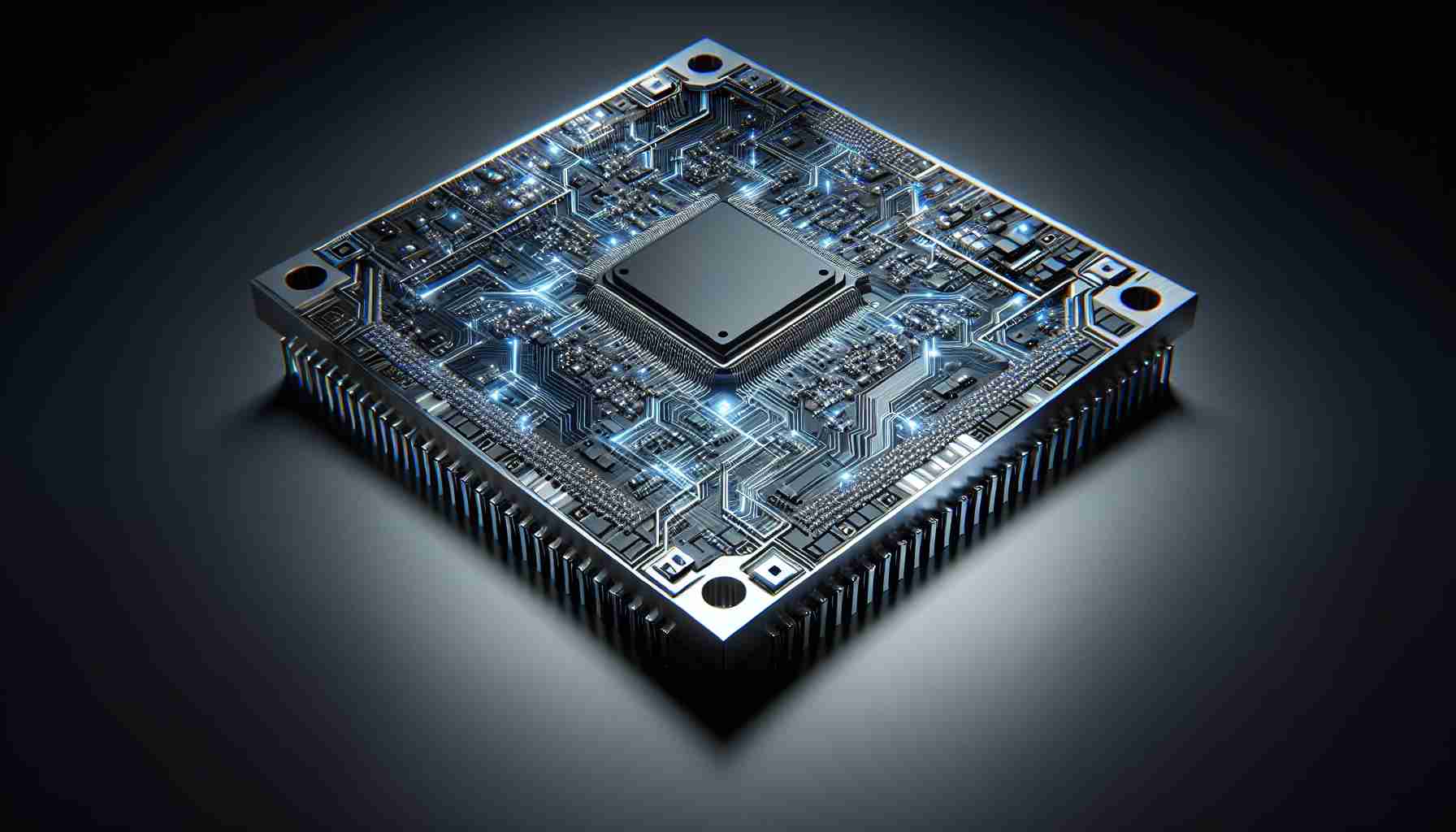Meta, the technology giant, has unveiled its next-generation Meta Training and Inference Accelerator (MTIA) chip, promising enhanced power and faster model training capabilities. This custom AI chip is specifically designed to optimize Meta’s ranking and recommendation models, making training more efficient and inference tasks significantly easier.
In a recent blog post, Meta emphasized that the MTIA chip is a crucial component of its long-term strategy to build cutting-edge AI infrastructure. The company envisions its chips seamlessly integrating with its existing technology and future advancements in GPUs. Considering the ambitious goals set for their custom silicon, Meta recognizes the need to invest in various elements such as memory bandwidth, networking, and capacity, along with next-generation hardware systems.
Originally announced in May 2023, MTIA v1 concentrated on equipping data centers with these advanced chips. The forthcoming next-generation MTIA chip is expected to cater to the same target audience. Surprisingly, Meta has announced that both MTIA chips are already in production, deviating from the initial projection of releasing MTIA v1 in 2025.
Although the current focus of MTIA lies in training ranking and recommendation algorithms, Meta has plans to expand the chip’s capabilities in the future. The goal is to enable the training of generative AI models, such as Meta’s acclaimed Llama language models. By providing an optimal balance of compute power, memory bandwidth, and memory capacity, the new MTIA chip boasts an impressive 256MB memory on-chip with 1.3GHz, surpassing its predecessor’s 128MB and 800GHz. Early test results have indicated a three-fold improvement in performance compared to the first-generation MTIA chip across the four models evaluated by Meta.
Looking ahead, Meta has also announced its intention to develop additional AI chips. Among these projects is Artemis, a chip specifically designed for inference tasks. As the demand for computational power increases alongside the widespread use of AI, various tech giants, including Google, Microsoft, and Amazon, have ventured into creating their own custom chips. Google introduced its TPU chips in 2017, Microsoft unveiled its Maia 100 chips, while Amazon developed the Trainium 2 chip, which significantly accelerates the training of foundation models.
The competition surrounding powerful chip procurement exemplifies the growing necessity for custom chips that can effectively run AI models. This demand has contributed to Nvidia’s impressive market dominance, resulting in the company’s valuation of $2 trillion.
FAQs
1. What is the purpose of Meta’s MTIA chip?
The MTIA chip from Meta is designed to significantly enhance AI model training, particularly for ranking and recommendation algorithms. It aims to improve training efficiency and simplify inference tasks.
2. How does the next-generation MTIA chip differ from the previous version?
Compared to its predecessor, the next-generation MTIA chip boasts improved specifications, including a larger on-chip memory of 256MB and a higher frequency of 1.3GHz. Early tests have demonstrated a three-fold improvement in performance across evaluated models.
3. Will the MTIA chip be able to train generative AI models?
While the current focus is on ranking and recommendation algorithms, Meta has plans to expand the chip’s capabilities to include training generative AI models, such as its Llama language models.
4. Are there other AI chips being developed by Meta?
Yes, Meta has announced its intention to develop other AI chips, including Artemis, which is specifically designed for inference tasks.
5. How does Meta’s MTIA chip compare to chips from other tech giants?
Other tech giants like Google, Microsoft, and Amazon have also developed their own AI chips to meet the demand for computational power. While each chip offers unique features, Meta’s MTIA chip aims to provide an optimal balance of compute power, memory bandwidth, and memory capacity to enhance AI training.
The AI chip industry is experiencing significant growth as tech giants like Meta, Google, Microsoft, and Amazon invest in developing their own custom chips to meet the increasing demand for computational power in running AI models. These custom chips are designed to optimize AI model training and inference tasks, providing enhanced efficiency and performance.
Meta’s next-generation Meta Training and Inference Accelerator (MTIA) chip is a crucial component of the company’s long-term strategy to build cutting-edge AI infrastructure. The chip is specifically tailored to optimize Meta’s ranking and recommendation models, making training more efficient and inference tasks easier. It is designed to seamlessly integrate with Meta’s existing technology and future advancements in GPUs.
Originally announced in May 2023, Meta deviated from its initial projection and announced that both the first-generation MTIA chip and the forthcoming next-generation chip are already in production. The new chip offers improved specifications, including a larger on-chip memory of 256MB and a higher frequency of 1.3GHz, surpassing its predecessor’s specifications. Early test results have shown a three-fold improvement in performance compared to the first-generation chip across the evaluated models.
While the current focus of the MTIA chip is on training ranking and recommendation algorithms, Meta has plans to expand its capabilities in the future. The company aims to enable the training of generative AI models, such as its acclaimed Llama language models. By providing an optimal balance of compute power, memory bandwidth, and memory capacity, the MTIA chip is expected to deliver impressive performance for training these advanced AI models.
In addition to the MTIA chip, Meta has announced the development of other AI chips. One of these projects is Artemis, which is specifically designed for inference tasks. As the demand for AI-driven applications continues to rise, the development of custom AI chips has become crucial for tech companies to efficiently run their AI models.
The competition in the AI chip market is fierce, with tech giants like Nvidia leading the way with their dominance in the market. Nvidia’s valuation stands at an impressive $2 trillion, highlighting the growing necessity and market demand for powerful custom chips that can effectively handle AI workloads.
In conclusion, Meta’s MTIA chip promises enhanced power and faster model training capabilities for AI algorithms. As the industry continues to evolve, custom AI chips are playing a vital role in meeting the increasing demand for computational power in running AI models, and Meta is positioning itself as a key player in this field.


